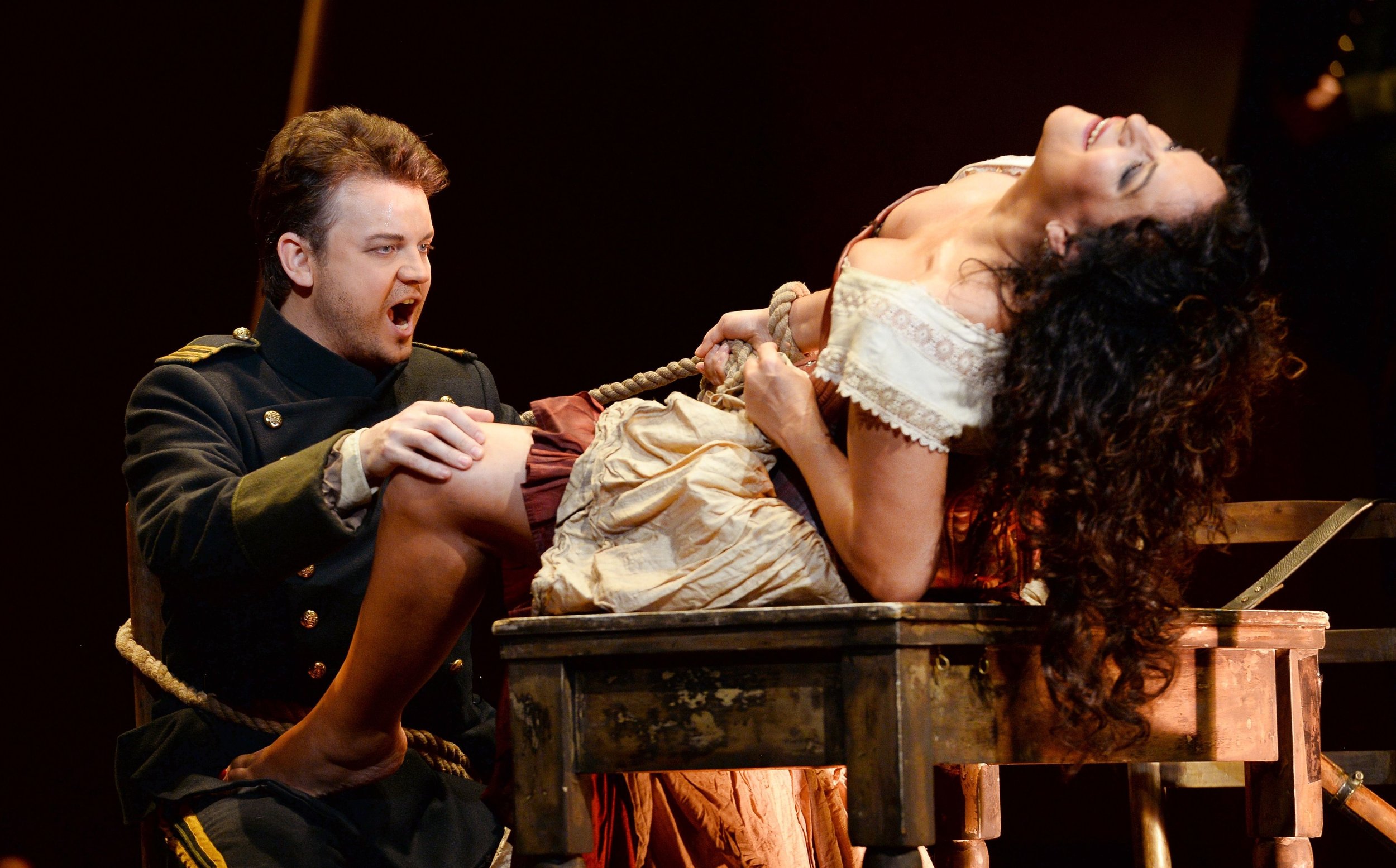Does #MeToo Society Need To Revisit The Classics?
From Annabel Harz: Author and Artist https://annabelharz.com/2022/11/22/guest-blog-robin-l-harvey/
By Robin L. Harvey
Recently I saw the opera, Georges Bizet’s Carmen, a production I’ve long adored. However, that October night when I watched Don José murder the show’s defiant female protagonist, I was left angry instead of uplifted.
I could not rise and burst into applause like the rest of the audience during the curtain call and its rousing rendition of “Toreador.” The beautiful overture, the arias, and choral renditions were ruined by the final duet, “C’est Toi C’est Moi,” when Don José issues a final threat to Carmen, telling her she must love him or pay for her treachery and then stabs her to death.
I realized the violent ending, though written in the 1870s, reflected a danger many women live with today. The danger that domestic violence will escalate and a woman will be murdered by her partner. Consider these facts:
About once a week, in both Canada and Australia, a woman is killed by her current or former partner.
Statistics from the United Nations show globally 81,000 women and girls were killed in 2020, and about 60 percent died at the hands of an intimate partner or a family member.
It is estimated that approximately 35 percent of women worldwide have been sexually assaulted in their lifetimes. But so few women report sexual assault, estimates place the real figure as twice that, at least.
When Georges Bizet wrote the opera almost a century and a half ago, he depicted Carmen as lusty, brazen and unconventional, everything a woman of that time could not be.
Yet many of these prohibitions still exist today for women. When the #MeToo movement, founded in 2006 by Tarana Burke to raise awareness about sexual violence went viral in 2017, it sparked worldwide hope for change among women.
Unfortunately, as ground-breaking as the movement first seemed, it failed to significantly improve women’s status. Why? Despite its leaders’ motivation and the brave intentions of women worldwide who took part and shared their intimate stories about abuse, #MeToo evolved into a movement for “outing” sex-assault perpetrators. How could things have turned out differently?
Women could have used the movement as a rallying cry to fight for meaningful systemic change, the way South Africa’s Nelson Mandela did when he became president. Mandela worked to heal and support the people apartheid had harmed when he became president and focused on changing the oppressive system that had supported apartheid for forty-three years. Apartheid’s harm was acknowledged, but his focus was not on blaming individuals. He reached out to find allies across all races to help create a new society.
The #MeToo movement had hoped if women shared their stories of abuse, they’d find support among each other and the strength in numbers to effect real change. Once pigeonholed as a campaign to “out” perpetrators of sexual harm, the movement lost its chance to grab the power needed to change a system that ignored and accepted such behaviour.
When COVID hit in 2020, systemic inequalities remained. Domestic violence escalated as many women were stuck, locked down with abusive partners with few outside supports. Women also assumed the bulk of child care and household duties during the pandemic. They lost job opportunities when they gave up their jobs to stay home and care for their families because their partner’s jobs paid more and were seen as more valuable to the family.
There is no doubt #MeToo changed the world. Women and men may now espouse “woke” sentiments and use more “acceptable” non-sexist language. Many sexual predators have been punished or “canceled” and that behavior is now seen for what it is – criminal. Yet more equality in corporate boardrooms and in elected office still eludes women.
There are no quick fixes, though in recent years, some people have rewritten Carmen’s ending to make it less brutal. One production even had Carmen shoot Don José, apparently thinking violence is always the answer.
Unless it is true hate speech, I do not believe in censoring or altering artistic expression. Updating or altering Carmen and other “inappropriate” works of art to make them more “woke” will not create change. Why? Because people must understand and learn from the past’s mistakes if they are going to create a better future. Erasing or rewriting it won’t work. As philosopher George Santayana wrote: “Those who cannot remember the past are condemned to repeat it.”
It was painful for me to come to terms with the opera Carmen‘s true message. But I learned from it. I learned that I have changed, and change is never easy. Especially if movements that begin as rallying cries like #MeToo are warped into token gestures.
Robin L Harvey

